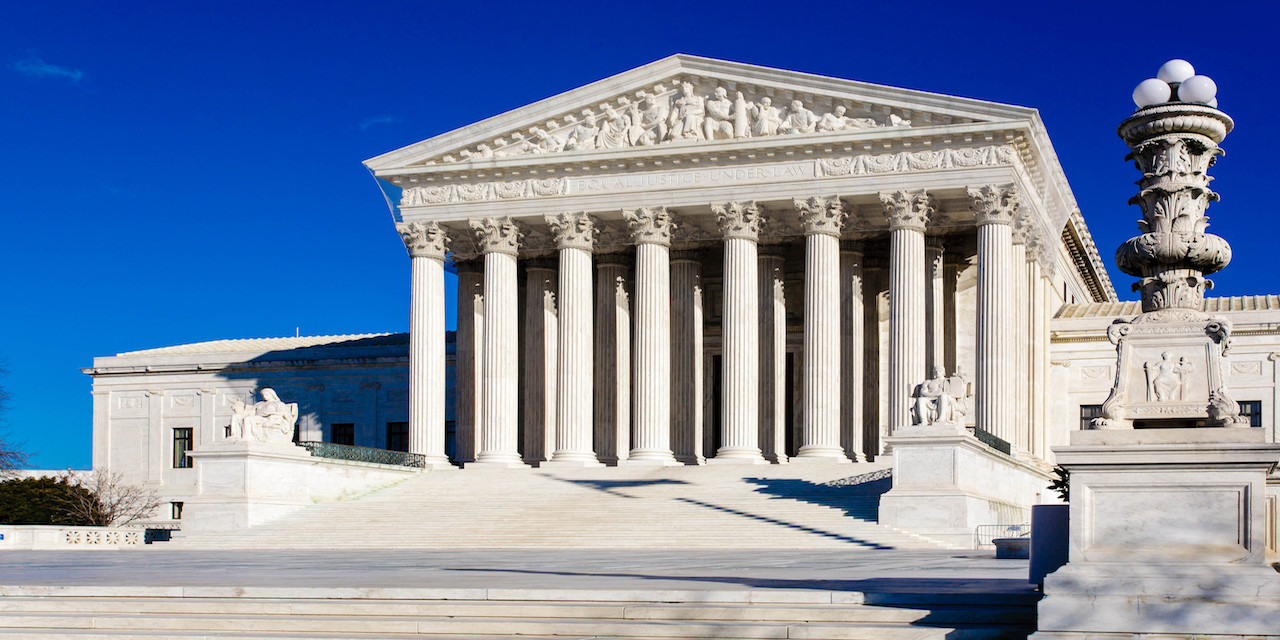Editor's note: This article has been revised and updated to include a statement issued by GSK.
The widow of a lawyer who took his own life, allegedly after taking the generic equivalent of widely prescribed antidepressant drug, Paxil, will not get a chance to undo a federal appeals court’s decision to toss out a federal jury’s findings that the maker of Paxil owes her $3 million because it allegedly didn’t push federal regulators hard enough to revise the drug’s warning label.
On May 28, the U.S. Supreme Court denied the appeal petition from plaintiff Wendy Dolin in her lawsuit against pharmaceutical company GlaxoSmithKline.

Lisa Blatt
The Supreme Court’s denial of Dolin’s petition was not accompanied by any written opinions or comments from the court’s justices.
Attorneys for Dolin did not reply Tuesday to a request for comment on the petition denial.
However, Dolin’s attorneys had only a week earlier expressed optimism the Supreme Court would kick the case back to the U.S. Seventh Circuit Court of Appeals for a new hearing. They had based that belief on the high court’s unanimous decision in a similar case.
In that action, docketed as Merck v Albrecht, the Supreme Court had instructed the U.S. Third Circuit Court of Appeals in Philadelphia to revisit its decision from 2018 allowing people to sue drug makers over the content of their medications’ warning labels, even if the U.S. Food and Drug Administration rejected a company’s attempt to revise the warning label to include more warnings about more potential side effects.
In the Albrecht case, a group of more than 500 plaintiffs had sued pharmaceutical company Merck, asserting the FDA’s regulation of drug warning labels did not absolve Merck of liability for bone fractures suffered by patients who took Merck’s osteoporosis drug, Fosamax.
Merck asserted the FDA regulation meant federal law should hold sway, and Merck should not be penalized under state law for failing to issue a warning the FDA had blocked them from including in their medication’s label.
In the Albrecht decision, the Supreme Court used the case to clarify the standards by which federal courts should decide the question on label liability. The case largely centered on the Supreme Court’s 2009 ruling in Wyeth v Levin, which held drug companies with “clear evidence” of problems can revise labels to enhance warnings, without FDA approval.
In Albrecht, the Supreme Court said the term “clear evidence” must include “evidence that shows the court that the drug manufacturer fully informed the FDA” of the potential dangers of its medication, and why the label should be revised to include that additional warning language.
In the Dolin case, the plaintiff’s attorneys had argued GSK did not press the FDA to revise the warning label to reflect the company’s alleged knowledge of an increased risk of suicidal behaviors in those taking Paxil.
Dolin had sued GSK over the death of her husband, Stewart Dolin, who had committed suicide in a downtown Chicago transit station in 2010. Dolin alleged her husband’s suicidal behavior was caused by the drug paroxetine, the generic version of GSK’s Paxil. The warning label for paroxetine is identical to the label for Paxil.
GSK asserted it tried several times to secure approval from the FDA to revise its Paxil label, but the FDA declined.
After two Chicago federal judges shot down GSK’s attempts to argue the FDA regulation should short-circuit Dolin’s labeling lawsuit, a jury awarded Dolin $3 million.
GSK appealed, and a three-judge panel of the Seventh Circuit Court of Appeals overturned the verdict, siding with GSK on the question of FDA regulation.
The decisions did not address another question at the heart of the Dolin case, that of “innovator liability,” or the theory that the original makers of a product should be held liable for the effects caused by others’ imitation products, often far into the future.
Dolin is represented in the case by the firm of Baum, Hedlund, Aristei & Goldman, of Los Angeles, and by attorneys from Rapoport Law Offices, of Chicago.
After the Albrecht ruling, Dolin’s attorneys said in an interview with The Cook County Record and in a brief filed with the Supreme Court, that the reasoning in Albrecht meant Dolin deserved a new hearing before the Seventh Circuit.
GSK, however, in its own brief filed with the high court, asserted the opposite was true, saying a new hearing before the appeals court would be “an exercise in futility,” even under Albrecht.
“There is nothing in Albrecht that could conceivably affect the Seventh Circuit’s holding that FDA was fully informed of the risk of suicide in adults and, after fully considering the evidence, rejected GSK’s attempts to add an adult-suicidality warning,” GSK wrote in its brief filed last week. “To this day, Paxil’s labeling retains the same class-wide language FDA mandated in 2007—the very language petitioner complains of here.”
GSK was represented before the Supreme Court by attorney Lisa S. Blatt, of the firm of Williams & Connolly LLP, of Washington, D.C., and attorneys with the firms of Arnold & Porter Kaye Scholer LLP, of Washington, D.C.; Dentons US LLP, of Chicago; and King & Spalding LLP, of Atlanta.
In a prepared statement, a spokesperson for GSK said: "GSK is pleased with the Supreme Court's decision today, which allows the Seventh Circuit’s decision in favor of GSK to stand. GSK demonstrated with clear evidence that FDA rejected the warnings the plaintiff claimed should have been in Paxil’s label, and there was no other basis for changing its label to require additional warnings."
